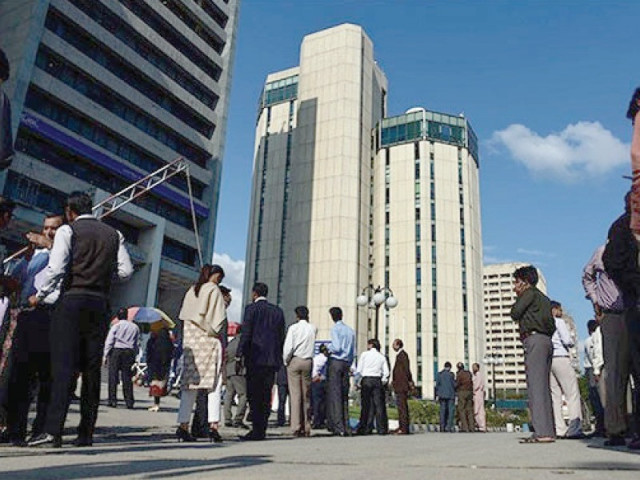Home-grown economic plan paradox
British economist's plan echoes suggestions already given by think tanks

In a paradoxical move to address the persistent economic challenges plaguing the country, Prime Minister Shehbaz Sharif has assigned the development of a "home-grown plan" to British economist Stefan Dercon. The Dercon plan, as reported in the press, appears to propose key structural reforms to achieve high economic growth.
Let's look at its economics. Firstly, economic liberalisation, where the government needs to incentivise private investment and remove trade barriers, thus allowing free trade.
Dercon plan targets $60 billion in exports from Pakistan over the next five years. While this sounds like an ambitious number, there is a dire need for an export-led economy to curb trade deficit in the country.
A recent report of Islamabad Policy Research Institute (IPRI) highlights that exports of Pakistan have not evolved much over time, with textile, agriculture and services sectors continuing to dominate the overall exports.
The plan also suggests the elimination of any kind of trade restrictions, either in the form of tariffs or a ban on imports. According to the Pakistan Institute of Development Economics (PIDE) reform manifesto, a whopping 30% tariffs create hurdles in the way of free trade in the economy.
Similarly, it is well known that Pakistan must integrate into global value chains to generate the much-needed foreign exchange.
The Dercon plan also suggests the elimination of subsidies, which substantiates the International Monetary Fund's (IMF) proposal to end subsidies in various sectors, and instead increase targeted subsidies, which are beneficial for the larger population and increase the magnitude of transfer programmes including the Benazir Income Support Programme.
The government's fixation on supporting sectors through subsidies is not new, and every year a major chunk of budget is allocated to subsidies, which benefit only a few.
In fiscal year 2024-25 budget, the allocation for subsidies has been increased by 27.3% to Rs1,363 billion, of which Rs1,190 billion has been earmarked for the power sector.
We already know that the removal of unnecessary subsidies, specifically to sectors which are underperforming, despite being fed on public money for years, is essential and can greatly help to narrow down the fiscal deficit as well as improve management outcomes.
Other ambitious suggestions include the increase in tax-to-GDP ratio to 13.5% annually within the next three years and reducing the size of the government to avoid any unnecessary expenditures.
Furthermore, it also proposes the reduction in cost of doing business by 3% of gross domestic product (GDP), through the introduction of Asaan Karobar Bill 2024. This measure aims to reduce both time and compliance costs.
Pakistan needs to learn from its peers in ease of doing business, like Malaysia, which jumped in ranking from 23rd to 6th position, resulting in savings of up to $250 million per year in terms of cost and time compliance.
By adopting the strategies that remove hindrances for businesses, Pakistan can greatly improve investor confidence.
While the home-grown plan is an initiative to address challenges faced by the economy, the plan mostly echoes suggestions previously proposed by think tanks like PRIME and PIDE, mainly focusing on tax reforms, reforms in state-owned enterprises (SOEs), lack of diversity in exports and challenges in the energy sector.
Stefan Dercon's proposals have been devised in isolation, without openly consulting with think tanks or the academia. This only goes to show the lack of government intention of including different stakeholders in policymaking process.
The lack of open debate is a significant drawback, undermining public confidence and lacking inclusivity, which could have been a potential resource in effective policymaking.
Now, let's look at politics. Dercon argues that certain countries are ahead in development race, compared to others, is because the elite of those countries are willing to take the risk of gambling on development, and are in support of policies crucial for development, even if it comes at the expense of their power and wealth.
Elite is an evasive and a catch-all term. We take the view of Pakistani philosopher Khalil Ahmad that the problematic elite are the statist aristocracy: any individual or institution whose economic life is essentially drawn from dependence on the state in the form of rent-seeking.
The statist elite include both state-owned businesses, including those run by the military, and private firms, which depend on state subsidies or protections. The statist elite can only be brought into bargaining position through a contested political process and level playing field, powered by a strong civil society.
Our current political arrangement, and the ubiquitous hybrid super-structure that patronises it, is unlikely to lead us to a bargain. The economics of Dercon Plan is old, and its politics is delusional.
The writers are affiliated with the Policy Research Institute of Market Economy (PRIME)


















COMMENTS
Comments are moderated and generally will be posted if they are on-topic and not abusive.
For more information, please see our Comments FAQ